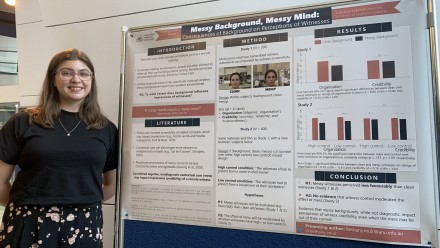Individual Differences in Reasoning and Decision Making in Moral Dilemmas
The classic trolley dilemmas are commonly used in psychological research on human moral reasoning. The literature has shown that people’s judgments on the morally preferred choice (i.e., whether to kill the minority or to allow the majority to die) can change across different variants of trolley problem. The present project explored the variation in moral judgments from the perspective of individual differences in the perceived uncertainty of various dilemmas. We argue that both sacrificing and not sacrificing the minority can be rational decisions in terms of maximising subjective expected utility. Several studies were conducted to examine participants' moral decisions and individual differences in factors such as perceived outcome probabilities and action costs across moral dilemmas. We showed that perceived outcome uncertainty predicted moral decisions across all dilemmas, independent from various dilemma characteristics. Other individual difference factors, such as risk taking tendency, callous unemotional traits and the interpretation of imprecise linguistic phrases, were also explored.











